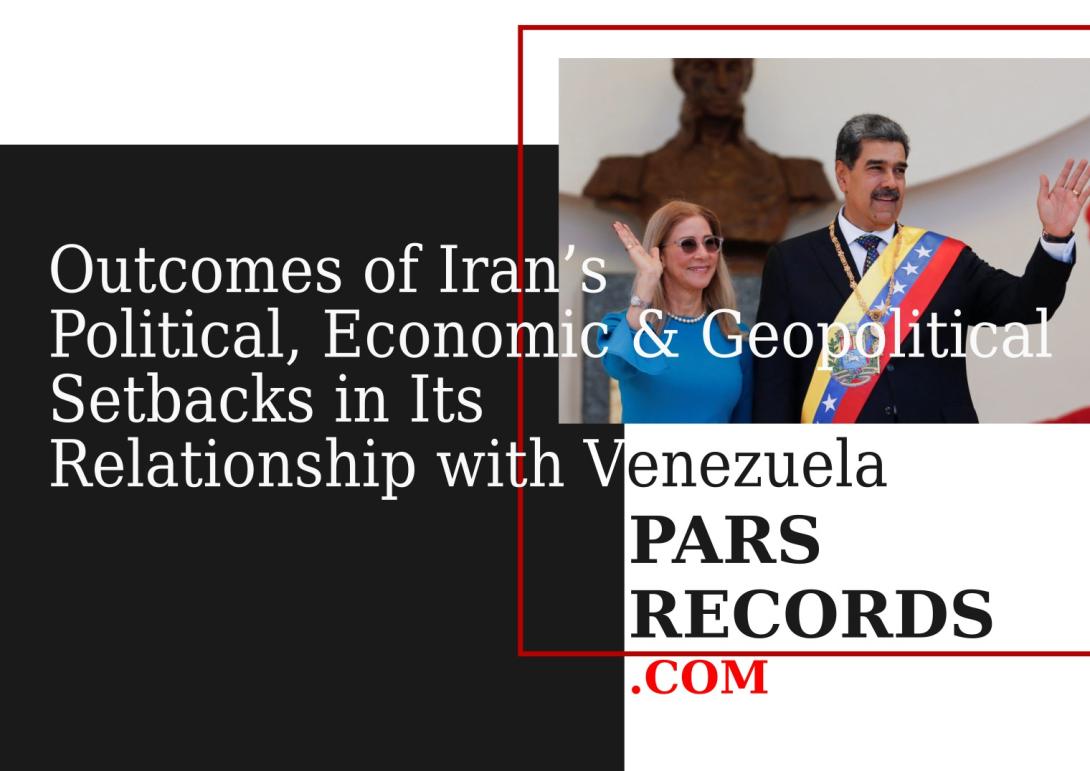Iran and Venezuela, two nations under heavy Western sanctions, have sought to build strategic partnerships over the past two decades. Their alliance has been framed as a counterbalance to U.S. hegemony, rooted in shared ideological narratives and economic needs, particularly in the oil and energy sectors. However, despite grand rhetoric and high-level agreements, the relationship has often yielded limited tangible results. Recent developments suggest that Iran may be facing setbacks — or even failures — in its engagement with Venezuela, with significant political, economic, and geopolitical consequences.
1. Political Consequences
A. Loss of Diplomatic Leverage
Iran’s political outreach to Latin America has long been centered around Venezuela, serving as Tehran's symbolic and strategic foothold in the Western Hemisphere. A faltering relationship with Caracas undermines Iran's broader diplomatic strategy in Latin America and weakens its image as a global actor resisting U.S. influence.
B. Internal Criticism and Legitimacy Crisis
Domestically, Iranian political leaders have used their alliances abroad as proof of their “resistance economy” model. However, the lack of concrete outcomes from the Iran-Venezuela relationship has sparked criticism within Iran, including from factions who argue that resources are being squandered abroad while the domestic economy suffers. Such criticism erodes the legitimacy of the government’s foreign policy choices.
C. Weakening of Anti-Western Alliances
Iran has promoted a “south-south” alliance with countries like Venezuela to build an alternative to Western-dominated institutions. A failed partnership damages the credibility of such alliances and could discourage other non-aligned or Global South countries from engaging deeply with Tehran.
2. Economic Consequences
A. Misallocation of Resources
Iran has invested heavily in Venezuela through oil swaps, infrastructure projects, refinery rehabilitation, and technology transfers. Many of these projects have failed to materialize or have faced logistical, technical, or financial difficulties. The economic return on investment has been minimal, representing a poor use of limited resources amid Iran’s own economic crisis.
B. Sanctions and Transactional Barriers
Both countries face significant difficulties in banking, trade logistics, and currency conversion due to international sanctions. Even when agreements are signed, executing them proves cumbersome. Iran’s inability to generate sustainable trade with Venezuela highlights the limits of sanction-survival economies partnering with each other.
C. Missed Opportunities Elsewhere
By focusing on high-risk, low-reward partners like Venezuela, Iran may have missed more pragmatic opportunities for economic engagement in other regions such as Asia, Africa, or even with certain European states willing to defy U.S. sanctions in limited areas. The fixation on Venezuela has narrowed Iran's economic horizon.
3. Geopolitical Consequences
A. Erosion of Global Influence
One of Iran's geopolitical goals has been to project influence beyond the Middle East. The Venezuelan alliance was meant to be a key pillar of that projection. But with Venezuela itself mired in economic collapse, political instability, and international isolation, Iran’s global ambitions tied to Caracas are losing traction.
B. Regional Irrelevance
As other countries in Latin America move toward centrist or pragmatic political positions (e.g., Brazil, Argentina), the radical populist axis that Iran tried to engage with is fading. Iran’s lack of adaptability to new political realities in Latin America renders it increasingly irrelevant in the region’s strategic calculus.
C. Strategic Exposure
Iran’s public alignment with Venezuela — often accompanied by anti-Western rhetoric — has drawn increased scrutiny from the U.S. and its allies. Military cooperation, arms transfers, or oil shipments between the two countries have occasionally triggered diplomatic tensions or threats of intervention. This puts Iran at risk of overextending its strategic reach without sufficient means to protect its interests.
Conclusion
The Iran-Venezuela partnership, while symbolically important to both countries, is increasingly revealing its limitations. Iran’s political, economic, and geopolitical investments in Venezuela have not yielded significant benefits and may in fact be producing strategic liabilities. As both nations grapple with internal crises and global isolation, the façade of a resilient anti-imperialist alliance is crumbling under the weight of economic inefficiency, diplomatic stagnation, and shifting global dynamics.
For Iran, the path forward may require a recalibration of its foreign policy priorities — moving from ideological alliances to pragmatic, interest-based diplomacy — if it hopes to maintain relevance in an evolving international order.
PARSRECORDS.COM


Comments